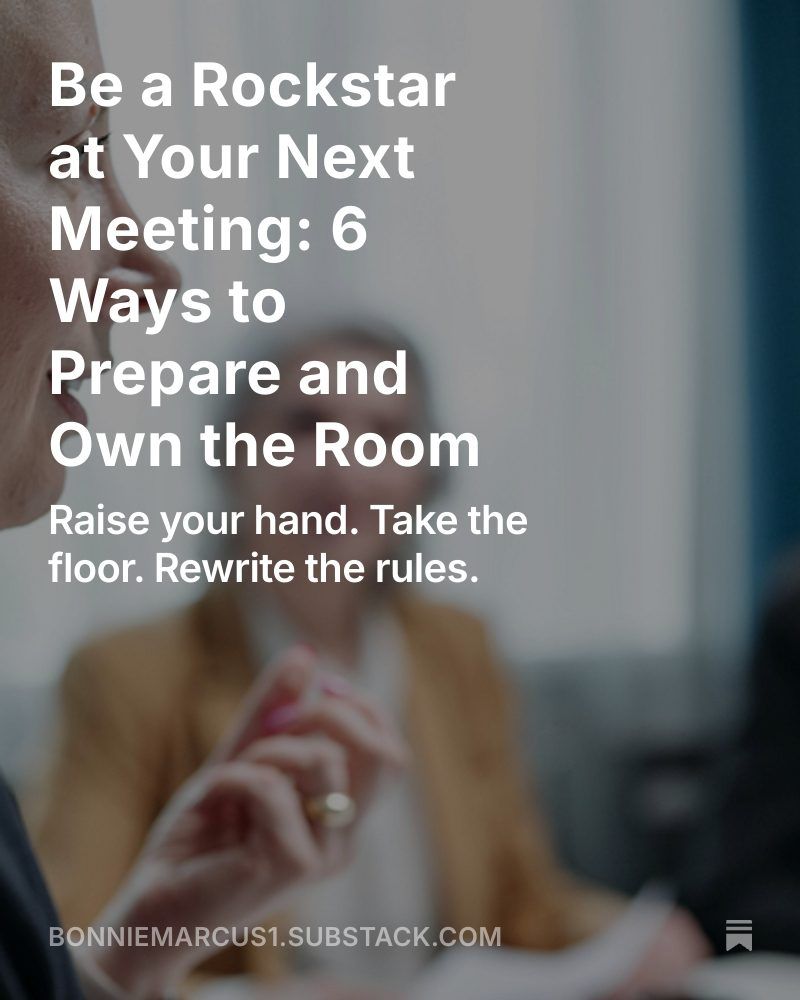
Early in my career, I was hired by a former boss from another company as a regional sales manager for a national healthcare staffing company. I was certainly qualified for the job with a track record of increasing revenue growth at previous companies. But the young CEO was new to his role, trying to prove himself, and tasked with growing the company. Under the microscope to meet certain goals, he asked my boss, who then asked me, to think about how we might accomplish that and how to structure and build a new national sales force. A meeting was called with the executive team and I was on the agenda to present my plan. I was also the new comer to the table, having recently started in this role.
I approached it strategically. I prepared my power point presentation, printed copies for all, and rehearsed my pitch. I knew who would be present, their roles and responsibilities. I calculated how my ideas would benefit them in those positions. I wrote out what would be possible objections and my responses. I knew the agenda. And I learned when I would be asked to speak, who was before me, who would follow me. And probably most important of all, I got there early and positioned myself in the spotlight directly across from the CEO. The presentation went well. I was immediately promoted to VP of Sales.
Meetings are where reputations are built or diminished. Where decisions are made and often, where careers are quietly accelerated. But for too many women, meetings are still minefields of being interrupted, overlooked, or penalized for speaking up.
Whether it’s a weekly check-in, a boardroom strategy session, or a high-stakes Zoom call, how you show up in meetings matters, not just to your performance, but to your visibility, your influence, and your path to leadership.
Research continues to reveal a troubling gap: women speak less in meetings, are interrupted more often, and are less likely to receive credit for their ideas. It’s critical to evaluate each meeting for importance and do your homework to avoid what are often common landmines for women.
“In meetings, women are expected to be collaborative and not too assertive. But if we play small, we get passed over. If we speak up, we’re seen as aggressive. It’s a double bind — but it’s one we can learn to navigate.” – Dr. Laura Kray, UC Berkeley Haas School of Business
ENOUGH!! As a competent woman, you need to contribute to the conversation and state your opinions and ideas. And if the environment, is not open to having everyone share, you need a plan so you stand out and are recognized for your leadership and insights. Your reputation depends on how you show up.
The good news?
There are concrete strategies women can use to reclaim power in these spaces.
Read the full article on Substack.com
Your blog is a testament to your dedication to your craft. Your commitment to excellence is evident in every aspect of your writing. Thank you for being such a positive influence in the online community.
Your blog is a constant source of inspiration for me. Your passion for your subject matter is palpable, and it’s clear that you pour your heart and soul into every post. Keep up the incredible work!
Your blog has become an indispensable resource for me. I’m always excited to see what new insights you have to offer. Thank you for consistently delivering top-notch content!